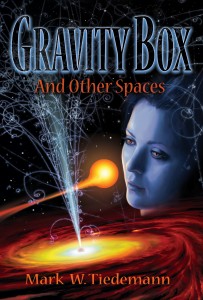To start, I put up a new theme. This one just appeared in the available queue and I really like it. So I intend sticking with it for a while. The last one was okay, but after a couple of weeks, it wore on me, so…
End of year review. The good, the bad, the post ugly.
I turned 59 this year. Not sure how to feel about that, but whatever I feel, it is what it is, I have no say in the matter. (A meme going around is that the 70s are the new late middle age. Well, that would give me about 30 more years or so to get it right, hm?) More on that later.
As noted, I am now working for Left Bank Books, which has turned out to be a mixed benefit. More benefit than not, frankly, since I am still not a Famous Author, able to live on my writing, despite my best efforts. I’ve been doing a lot of soul searching about those efforts, believe you me, trying to figure out just what I did—or didn’t—do right. And wrong. And working a bit harder at fending off a touch of bitterness. You do the best you can and then wait to see if that’s enough. If I could do it better or do it just as well differently, I would.
I should explain about the mixed part of the job. Much to my relief and enormous pleasure, I find myself looking forward to going to work. I’ve fallen in with marvelous, subversive, intellectual types, each one amazing in a different way. My last job, which lasted far longer than it should have, was one where I said regularly that if I hadn’t liked the people I worked with, I wouldn’t be there. No sense slaving away at a job you don’t like in company with people you despise. Granted, many folks—too many—do not have the luxury of choosing, and in that I’ve been fortunate, but even working with good and fun people can fail to compensate for the drudgery of a job you hate. Such is not the case now. I’m enjoying this immensely and my co-workers are wonderful.
But I’ve been staggering through the year trying to accommodate the new schedule and my writing and because of the nature of the job, the hours are staggered. It’s been surprisingly difficult to get any kind of rhythm for my work and the net result has been a lot of fragmentary stories and not nearly as much progress on any of my novels as I would like.
I can’t blame all this on the job. In fact, while the schedule has been a bit awkward, the job has nothing to do with my lack of progress.
I’m beginning—finally—work on the third novel in the Oxun Trilogy. I’ve been building up to this—and more than a little intimidated by it—since finishing the second novel. This one is the one set in the Napoleonic Era and is the most concretely historical, and frankly, it’s been daunting. A couple months ago I opened a file and began. And began again. Began two more times before realizing that I’d started it in the wrong place. Which also meant the research I’d been poring over was all wrong and I needed to deal with a different year and a different place. I’ve begun once more and now it feels right.
Could I have begun sooner? As much as I wanted to, no. I didn’t have a way in till now.
Time weighs on my mind. I’m about a decade behind where I wanted to be. Maybe more. (Okay, this is the tantrum part. Just sayin’.) When Compass Reach came out in 2001, I’d really thought it was the start of what would be an uninterrupted string of novels. At this point there ought to be at least six, maybe seven Secantis novels. At least. I had a schedule drafted of which books would come next. The collapse that came in 2005 derailed everything.
There are days I think I’m not really very good. Not as good as I need to be, not as good as I want to be. Such thoughts drag at me, so I dismiss them and move on.
So moving on. (Tantrum over.)
I read far fewer books cover to cover this past year than the year before. 33, in fact. But some of them were really good books.
The best of them included my friend Nicola’s new novel, Hild. (See previous post.) Also, Kate Atkinson’s Life After Life, a quasi-fantasy, bizarre story about Ursula Todd, who lives again and again after dying in different ways and then starting all over. It covers the big, violent middle of the 20th Century and is a fascinating piece of work that I hesitate to describe other than as a quantum biography.
I read Khaled Hosseini’s The Kite Runner and his newest, And The Mountains Echoed. I will read the one that came in between them, but, as beautifully written as these books are, as poignant and heart-grabbing, there is a sadness in them that, in the latter book, is almost unbearable.
Going Clear by Lawrence Wright is a detailed and comprehensive history of Scientology. Well-written, thoroughly researched, it is a disturbing story that cannot but call into question the entire idea of religious movements. Somewhat thematically—coincidentally so—linked, I also read John M. Barry’s Roger Williams and the Creation of America, about the pilgrims, John Winthrop, and Roger Williams and the nature of one of our founding myths. A likewise disturbing history, it made me wonder why Roger Williams is not taught as one of the primary heroes of our national story—but then, the answer to that is also in the book.
One of the best SF novels I read this year is Lexicon by Max Barry. It’s about language and love and power and freedom. Superbly executed, it does not fail its premise.
I also read David Mitchell’s Cloud Atlas this year and I’m glad I did. I also saw the film this year—twice, now—and I have to say this is one of those rare instances where book and film complement each other marvelously.
Possibly the most disappointing read was William Gass’s purported “last novel”—Middle C. I reviewed it at length over on the Proximal Eye. Gass is legendary, one of those bastions of high literary culture, and this was the first novel of his I’d encountered. I cannot recommend it.
I am starting a reading group at Left Bank Books. One of the things I’m hoping to do there is increase the profile of science fiction represented in the store, and after fumbling about a bit I decided this was the best way to do it. It’s being tied in to Archon and will, if successful, result in a panel or two at next year’s convention about the books under review. To that end, I reread Consider Phlebas by Iain M. Banks.
Anyone who has followed this blog for any length of time will know the esteem in which I hold Banks. It deeply saddened me when he passed away this year. We were both born in 1954. Cancer took him and there will be no more Culture novels. It was with great pleasure that I reread his first Culture book and found it even better than on my first encounter. I’d looked forward to some day meeting him, but that will not happen now.
We’ve lost a number of people this year in this field, some of whom I knew. Frederik Pohl died. Gateway is still, in my opinion, one of the best SF novels ever written. Jack Vance also passed away, a writer I respect and have difficulty reading. A paradox, that, and I consider the fault entirely mine. There are riches to be found in his enormous body of work and I have yet to figure out how to extract them.
British writer Colin Wilson died. I was peripherally aware of his work, which seemed to me to combine Kurt Vonnegut and Philip K. Dick in peculiar and occasionally fascinating ways. I recall The Philosophers Stone in particular, but he will, for better or worse, be remembered for Space Vampires, from which the movie Life Force was made. He called himself the greatest writer in the world once. Well.
The biggie for literature in general, though, was Doris Lessing, who was a Nobel Laureate and had the audacity to write science fiction unapologetically and then tell the critics they were idiots when they derided her for it.
Ray Harryhausen died. I still marvel at his special effects work in movies such as Jason and the Argonauts, The Seventh Voyage of Sinbad, and many, many others. I had a chance to meet him when he and Ray Bradbury were co-guests of honor at an Archon many years back.
Which brings me to the part where I ruminate on mortality. I have a great deal I want to do yet. I have a list of books I want to write, places I want to see, things I want to do. The fact that it seems to be taking me an inordinate amount of time to get firmly established as a writer irritates me on the level of how much more I want to accomplish. If I have a fear of death at all, it is that I won’t get finished with what I want to do. The thought of leaving things undone, to be either completed by others, tossed out, or ignored bothers me. That is my only reservation about mortality. (Oh, I fear getting old and sick, but death holds no terror for me. For one, once dead, I won’t know. I expect it is very much like a switch thrown, then nothing. Power off, lights out. But I don’t like the idea of suffering. Never did.)
On a more positive note, I did learn that I will have a short story collection coming out in 2014. Much to my surprise. From a local publisher, Walrus. Closer to release date (May, we think) I’ll tell the story about it, but it will be called Gravity Box and Other Spaces. The stars align and the chips fall properly, we’ll do a release event at Left Bank Books.
I’ve been continuing to recover from my near-death experience of August 2012. Appendicitis, you will recall. Then a complication, an abscess. Didn’t get completely over the surgery(s) till December. I went back to the gym in March of this year. Right before coming down with the seasonal grunge, I was nearly back up to all the weights I’d been doing, with the addition of an aerobic section on the treadmill. I did 900 lbs on the leg press before the Cold From Hell, which is 30 lbs shy of where I was before my appendix burst. Still not gonna make the thousand I wanted to do by year’s end, but hey, not too shabby for an old man. (Oh, right, middle aged.)
We took a major vacation this past year to northern California. The excuse was a kind of Clarion class reunion in Sacramento. Nicola Griffith and Kelley Eskridge were joint GoHs at Westercon and the idea for a reunion spawned. Several of us showed up. I wrote about it back in August. It was amazing. After the con, we rented a car and drove up the coast to see redwoods and Pacific Ocean and cool fog and wineries and ended up staying with Peter and Nan Fuss on their (modest) mountaintop. Expensive and we could ill afford it, but it was also one of those cases of we couldn’t afford not to. There are pictures over in the Zenfolio galleries.
Donna is almost—almost—recovered from the Job From Hell. It took more out of her than either of us realized. It’s been two years and she’s finally feeling something of her old self. I continue to take care of her.
Especially now, for reasons I don’t wish to go into here. Suffice it to say that years have caught up in an all-too common way and she has extra burdens, with which I’m trying to help. We’re fine. But…
We had a very low-key Christmas. Didn’t even decorate. But it was the Christmas we needed, because we spent it together.
This coming spring we will be celebrating 34 years together and I can truthfully say I love her more now than ever before. We’ve been through hell together. And heaven. We are comfortable with each other and I cannot imagine life without her.
So all in all, 2013 was a better year than many in the last decade. We made some fabulous memories and did some wonderful things and we’re going into 2014 feeling better and more optimistic than we have in some time. In closing, I’d like to thank all the friends and acquaintances—and most especially the new friends we’ve made at Left Bank Books (Kris and Jay and Lauren and Shane and Jonesey and Jessi and Jenni and Randy and David and Sarah and Evan and Mariah and Robert and Cliff and Erin—which reminds me, next paragraph—and Wintaye and Bill and the other David and I know I’m forgetting someone)—and those we’ve known almost all our lives and those we’ve known only part of our lives and those we’ve known only a short time…
Next paragraph, yes. I shot my (I think) fourth wedding. Erin, a coworker, wed Frank in the store at Left Bank Books on December 1st. I shot the pictures (the “official” pictures) and must report that this was one of the coolest weddings I’ve ever been to. Another coworker, Jonesey (Sarah Johnson) officiated and great joy, a few tears, an annoyed cat, and tremendous celebration ensued. I’ve never attended a wedding held in a bookstore before, but now that I have I wonder why it doesn’t happen more often.
There is, I know, much more to say about this past year, but for now this is enough. We’ve come through better than we were last year at this time and ready for next year. Anyone who can say that is in the plus column of life.
Happy New Year.



